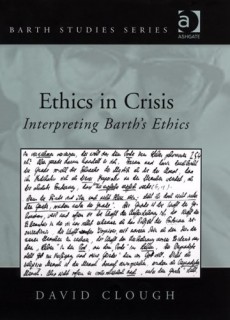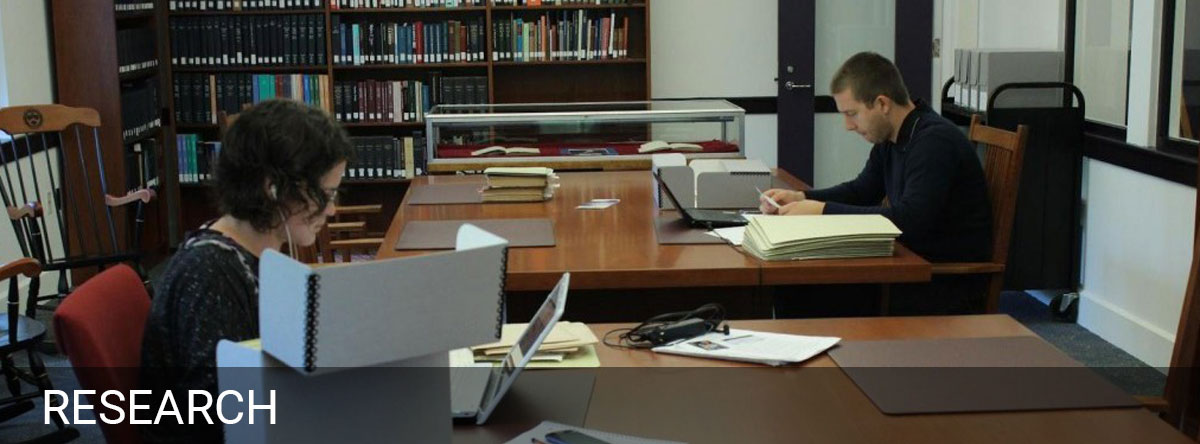 David Clough, Ethics in Crisis: Interpreting Barth’s Ethics (Aldershot: Ashgate, 2005), xix + 143. $84.95
David Clough, Ethics in Crisis: Interpreting Barth’s Ethics (Aldershot: Ashgate, 2005), xix + 143. $84.95
Reviewed by Matthew J. Aragon Bruce ()
In this book, David Clough, Tutor in Ethics and Systematic Theology at St. John’s College, Durham, argues that Barth’s theological ethics have, with few exceptions, been misunderstood. He puts forth a constructive proposal for theological ethics by means of a convincing reconsideration of Karl Barth’s ethical thought and its development. Expanding upon his 2000 Yale dissertation, Clough builds upon Bruce McCormack’s criticism of von Balthasar’s thesis and argues that Barth’s theological ethics are in continuity from the second edition of The Epistle to the Romans (Romans II) on through the Church Dogmatics(CD), i.e. Barth’s ethics remained a dialectical “Ethics in Crisis” throughout his work.Clough’s proposal, in short, is that a proper theological ethics will be one that has learned from Barth that we cannot claim to have absolute knowledge of what God’s will is in a particular situation, but neither can we refrain from attempting to discern what it is. Ethics, for Barth, is never a secondary discipline to be distinguished from regular dogmatics. Because of this, theological ethics will be permanently confronted with the crisis brought out by God’s self-revelation in Jesus Christ which puts all human knowledge into question.Clough offers a correction to what he sees as the two major ethical interpretations of Barth. Either Barth has (1) offered a destabilized and irresponsible ethical formulation that gives little room for human action and as such we would do well to leave it behind, or he has (2) supposedly denied that ethical knowledge is possible resulting in a “contentless norm” that is to be praised, at least according to several post-modern thinkers. Clough’s criticism of both of these views is that they have only picked up on one side of the dialectic—the negative side—and have missed out on the positive side altogether. Clough’s analysis is that in Romans II the negative side of the dialectic, human-not-doing, takes up the bulk of the work, functioning as a rhetorical device to get the reader’s attention as to the reality of the crisis. It is only after this does Barth brings in the positive side of the dialectic, God’s Yes and human freedom. Neither side of this dialectic can be left behind in responsible theological ethics, nor are we to strive for a Hegelian synthesis of thesis and antithesis, rather “the brokenness of the relationship between God and humankind and our predicament resulting from it can only be expressed in the brokenness of the language of dialectical theology” (15).
Clough proceeds by a systematic analysis of Barth’s work in Romans II and the CD. In Chapter 2 he discusses Barth’s treatment of specific ethical issues under the headings love and community; and war, peace, and revolution. This corresponds with Chapters 6 and 7 in which Barth’s treatment of these themes in the CD is discussed. These two chapters allow Clough to compare Romans II and the CD, successfully demonstrating the overall continuity, albeit with modification and development, between the thought of the younger and mature Barth.
Clough demonstrates that he is a master of secondary literature. He systematically responds to various critics of Barth’s ethics and shows how they have missed various aspects of Barth’s arguments. From uncompromising critics such as Robert E. Willis to appreciative supporters of Barth’s work like John Webster, Clough demonstrates that the majority of the criticisms are due to an under-appreciation of the dialectic at work in Romans II. He is especially harsh on post-modern interpretations which revel in the supposed lack of structure exhibited by Barth’s ethical formulation. These interpreters are shown to have little grasp of the logic of Barth’s thought and are deftly dismissed.
Particularly insightful is Clough’s treatment of the work of John Howard Yoder. Yoder praises Barth’s work but considers his treatment of preparation for the treatment of war to be inconsistent with his overall consideration of peace and war. Clough points out that while Barth does decidedly move towards pacifism in the CD, any advocacy for either war or strict pacifism would be a violation of Barth’s metaethical principles. However, Clough is no advocate of some sort of “Barthian Scholasticism” and he agrees that Barth’s consideration of preparing for war is inconsistent and offers a correction to Barth that is in continuity with Barth’s overall thought. Clough argues that Barth’s ethics must allow for the possibility that the use of force is the proper response to God’s command, but that there is no mandate for purposively preparing for this action. Christians are to devote their time to preparing for peace; in fact, according to Barth, the Christian vocation is peacemaking. (90-98).
In his discussion of the metaethics of the CD, Clough demonstrates the evolution of Barth’s thought by bringing out the relationship between ethics and election. Barth’s new understanding of election allows for the positive side of the dialectic—human freedom and agency—to be given greater attention. Through the understanding that we are elected to be God’s eternal covenant partners, the role of ethics is now that of seeking an answer to how we should respond to this election and what God wants from us as covenant partners. “The world is still under the judgment of God’s ‘No’ and far distant from its redemption, but we can claim our place as covenant partners of God and be freed for life under the affirmation of God’s ‘Yes’” (64). In the CD, Barth’s ethics take the form of Divine Command Ethics (something he does in the 1928/29 Ethik as well, see below) while retaining a dialectical structure in continuity with Romans II. This dialectical ethics is understood by Clough as follows:
Our ultimate responsibility is to live in accordance with God’s word to us, yet there is no single place we can turn to find it, and do definite methodology to follow. The command is universal, yet particular to each person and each moment in time. We exist in the completed kingdom of God where we are commanded to love God, yet we also exist as those on the way to the Kingdom who are commanded to love our neighbour. We are justified and love with agape, yet are sinners and love with eros. We know we are called to be peacemakers, yet we cannot make pacifism a final absolute. We are called to action of the side of the victims of capitalism, yet we know human forces of reaction and revolution are irrelevant in the face of the revolution of God (113).
In this light, Barth’s ethics is dubbed an “ethics for wayfarers” (theologia viatorum), in which we are called to be faithful, humble, and active in our pursuit of what God would have us do. We cannot impose any structure upon ethics that will impede our listening to the Word of God, nor can we advocate for a “contentless norm” that negates our ability to identify injustice or properly direct our obedience. Clough has masterfully shown that Barth’s ethics avoids these two poles and gives us a critical but substantive theological ethics with which to follow, obey, and remain open to the grace of God.
There is one major deficiency in this volume. Before proceeding to a discussion of the CD, Clough discusses Barth’s work from 1921-1932 (the period between Romans II and the CD). This section coincides with McCormack’s thesis that there was no dramatic shift from dialectic to analogy and supports the reading that dialectic is a consistent aspect in Barth’s thought. The arguments made in this chapter support Clough’s interpretation of Barth and his analysis of the Göttingen and Münster Dogmatics as well as the Anselmbuch, among other of Barth’s works, is excellently done. However, there is no coverage of the posthumously published 1928/29 lecture series on Ethics, nor the 1929 lecture “The Holy Spirit and the Christian Life.” The fact that there is not only no analysis of these works, which are explicitly about ethics, nor even a footnote or bibliographic reference acknowledging the existence of these works is a conspicuous lacuna in a study whose intention is to both explicate and show the development of Barth’s theological ethics. Clough’s study would have been enhanced by the addition of this material, and as there is limited analysis of it in the secondary literature his work would have been all the more original and complete.
This major lacuna aside, this is an excellent book that will quickly become a definite and reliable guide to Karl Barth’s ethics. Not only that, it is a fine piece of constructive theology. Clough’s work is no mere explication of Barth. It moves beyond Barth and does not simply offer corrections to Barth’s work. This study also points out the implications of dialectical ethics so as to serve those who are committed to engaging in ethics and dogmatics which are informed by the self-revelation of God in Jesus Christ.
The views expressed here are strictly those of the author; they do not necessarily represent the views of the Center for Barth Studies or Princeton Theological Seminary.


